
My journey into the world of gardening began with my grandfather in northern Italy. This inspiration led me to cultivate my very own natural oasis right in the heart of London. Together with my fiancé, we transformed our front yard into a flourishing edible garden, offering a year-round supply of fresh herbs and medicinal plants, which we utilise to concoct natural remedies, saving us money. Additionally, our modest backyard, spanning just 40 square metres, yields an impressive variety of fruits and vegetables.
Despite these successes, I have long aspired to secure an allotment to expand our endeavours. I am a firm believer in the critical role these urban green spaces play- not only in providing fresh produce but also as vital sanctuaries for insects and wildlife, which I am eager to protect and enhance.
Back in August 2022, I finally secured my allotment, but due to pressing work commitments, I couldn't start working on it until spring the next year. The plot is a perfectly positioned 120 square-metre space, south-facing and free from any light obstructions, making it ideal for growing a wide variety of fruits and vegetables. As the growing season was rapidly approaching, I knew it was crucial to begin setting up the garden quickly. However, the plot was completely overgrown with tall grass and weeds, and even had a young oak tree in the middle.
The very first thing I did, even before beginning to plan the layout, was to set up a compost bay to the right side of the existing shed. It seemed impractical to waste all the available green and brown material, which could be transformed into valuable compost to enrich the soil.
This story is from the July 2024 edition of BBC Gardeners World.
Start your 7-day Magzter GOLD free trial to access thousands of curated premium stories, and 9,000+ magazines and newspapers.
Already a subscriber ? Sign In
This story is from the July 2024 edition of BBC Gardeners World.
Start your 7-day Magzter GOLD free trial to access thousands of curated premium stories, and 9,000+ magazines and newspapers.
Already a subscriber? Sign In

A new plot for tasty crops
Taking on a new allotment needn't be hard work. By simply following a few easy tips you can have bumper crops in no time, just like Alessandro Vitale

We love July
July is an island floating between the joy of June and the slightly fatigued month of August. It's a grown-up month: the year has shrugged off its adolescent exuberances, the weather is (hopefully) warm enough for ice cream to be one of your five a day, the sea should be swimmable without (too much) danger of hypothermia and thoughts will be of holiday shenanigans and family barbecues. School's out this month, the next tranche of glorious summer colour is washing across our borders and it's my birthday. Lots of reasons to give three rousing cheers for July!
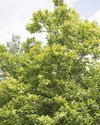
YOUR PRUNING MONTH
Now, at the height of summer, Frances Tophill shows how to boost your plants' health and productivity with a timely cut

Hassle-free harvests
Flowers are out in abundance this month and for Jack Wallington, many of these blooms make delicious, low-effort pickings
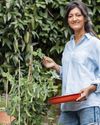
Bite-sized bounties
Glorious doorstep harvests can easily turn into gluts, so let Rukmini Iyer's recipes help you savour every last bit
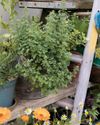
Upcycled outdoor living
Create unique and stylish garden features for minimal cost using reclaimed materials and simple DIY skills. Helen Riches shares four step-by-step projects and more inspiring eco tips

Secrets of a COLOURFUL GARDEN
Buildings and landscapes can play a vital role in supercharging your space, as Nick Bailey demonstrates

Greening up a city balcony
Looking for sustainable, small-space gardening ideas? Take inspiration from Oliver Hymans' transformed balcony garden in north-east London - now a lush, green haven for humans and wildlife
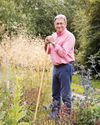
The dry and mighty garden
As we adapt our gardens to a more volatile climate, Alan Titchmarsh reveals how to create a drought-tolerant plot and picks his top plant performers
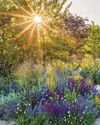
Nature knows best
Carol Klein explains how to choose plants for specific growing conditions, based on what has naturally adapted to thrive there